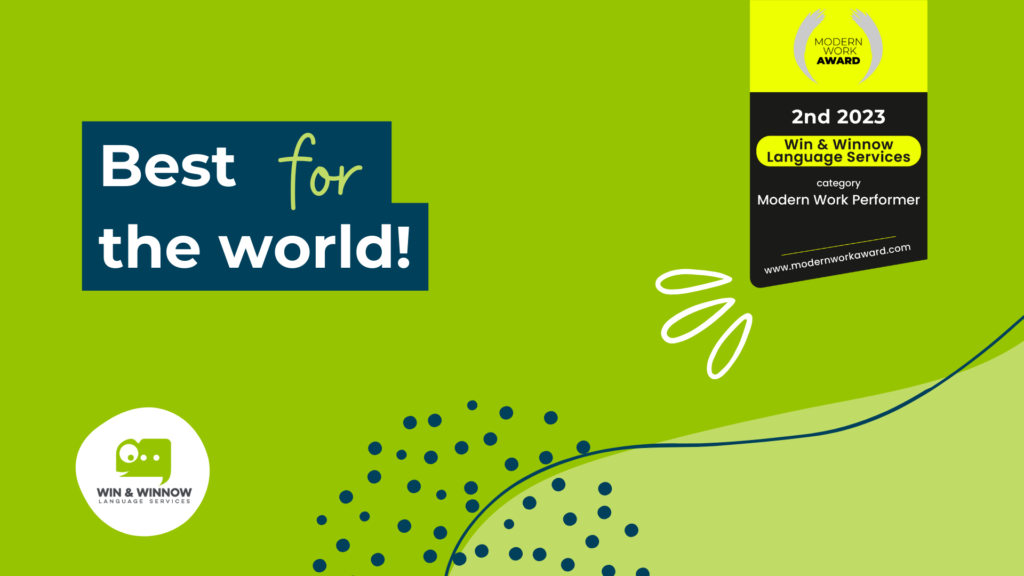Suppliers can become great allies to increase a business’s positive impact on people and the planet. In this article, we will discuss the benefits of committing to supplier diversity and adding a sustainability factor to it, and we also focus on the making of our own Supplier Diversity and Sustainability Program.
Understanding suppliers from a triple bottom line perspective
Supply chain management has long been a relevant aspect when conducting business. Building solid relationships with your suppliers and getting the price-quality formula right is an everyday landscape for Procurement Teams. Yet, in recent decades, more and more business leaders have realized the undeniable importance of incorporating diversity and sustainability requirements into their supply chain strategies. Whether it is to secure their governance, contribute to creating more inclusive markets, diminish any negative impact on the environment, or all of the above, businesses are taking supplier diversity and sustainability in their value chains more seriously.
Let’s begin by acknowledging that suppliers and their workforces are members of a broader global community in which our businesses operate and impact. Supply chains are the engines of today’s global economy, delivering goods and services all over the world and connecting businesses and the people who work for them. From this idea, we can deduce that there is always an opportunity to make a positive impact, whose output will depend on how we decide to establish our relationship with our suppliers.
The New Economy proposed by the B Corporations Movement aims to make a positive impact that is a triple bottom line: on the economy, the people, and the environment. Why so? It posits the question about the point of an economy that grows financially but, because of its very nature, generates rising inequality, drains our planet’s natural resources, deepens individualism, and excludes thousands of people. As the opposite and redeeming getaway, it sets out on its mission to transform the economic system into a more inclusive, equitable, and regenerative global economy.
In this context, incorporating sustainability into supply chain management strategies and practices means the opportunity to create, protect and grow long-term environmental, social, and economic value for all stakeholders involved in bringing products and services to market. So does the Global Compact—the largest voluntary initiative based on CEO commitments to implement universal sustainability principles— put it in their report on Supply Chain Sustainability.

Supplier Diversity and Sustainability: A supplier diversity program, plus the environmental factor
When it comes to Diversity, Equity, and Inclusion (DEI), the concept of supplier diversity will probably ring many bells. It is a business strategy that ensures a diverse supplier base in the procurement of goods and services for any business or organization. In that sense, it emphasizes the creation of a diverse supply chain that works to secure the inclusion of diverse groups in procurement plans.
In a previous blog, we discussed the benefits of implementing such a strategy. They range from promoting a better and more equitable economy to uplifting the communities where these companies are located, giving your employees a sense of purpose, and fostering innovation and the entry of new products, services, and solutions. We also discussed the process of getting a Women-Owned Business certification, like the one we hold since 2020.
Now, we would like to dive into the environmental factor, which should also get consideration when planning for Supply Chain Sustainability. Environmental impacts are frequently severe, particularly where environmental regulations are lax, price pressures are high, and natural resources are perceived to be abundant. Consequences of negative impact include toxic waste, water pollution, biodiversity loss, deforestation, long-term damage to ecosystems, water scarcity, hazardous air emissions, and high greenhouse gas emissions and energy.
Therefore, when considering partnerships that are good for the planet, you should prioritize suppliers that actually care and take actions to prevent, control, or restore their negative impact. If you decide to adopt a Supplier Code of Conduct or determine assessment criteria, you may want to include topics such as:
- Material toxicity and chemicals
- Raw material use
- Recyclability and end-of-life of products
- Greenhouse gas emissions
- Energy use
- Water use and wastewater treatment
- Air pollution
- Biodiversity
- Deforestation

Our Supplier Diversity and Sustainability Program
When thinking about the kind of suppliers we wanted to prioritize and the relationships we wanted to build with them, we made sure to put the triple bottom line in the center. All economic, environmental, and social aspects must be given consideration when assessing and choosing a supplier. We recognize that diversity and inclusion and environmental sustainability are essential to reach the full enjoyment of all human rights in our community, and are also keys to achieving sustainable development.
For these reasons, we crafted a procurement plan that accurately reflected our expectations and our commitment to Supply Chain Sustainability. In our Supplier Diversity and Sustainability Program, we commit to:
- Develop and expand relationships with diverse businesses owned/operated by an individual or group that is part of a traditionally underrepresented or under-served group, such as women, LGBT people, persons with disabilities, and minorities, among others.
- Advance sustainable procurement practices that set the expectation for suppliers to provide updates around their environmental initiatives, goals, and impact.
This translated into the Purchasing Department attracting, fostering the registration, and giving preferential treatment to those suppliers that are certified as, or can demonstrate that are:
- Women-Owned Businesses or staffed by at least 51% women members
- LGBTQ-Owned Businesses or staffed by at least 51% LGBTQ members
- Disability-owned Businesses or staffed by at least 51% members with disabilities
- Minority-owned or staffed by members of vulnerable, marginalized, or underrepresented social groups
- Small and Medium-Sized Enterprises (SMEs)
- Local suppliers at significant locations of operation
- Certified B Corporations
- Triple Impact Businesses
- Companies with active sustainability initiatives/certifications
At Win & Winnow, we have not only implemented a Supplier Diversity and Sustainability Program… we are a diverse and sustainable supplier ourselves. We are a carbon-neutral company, part of the UN Global Compact, and we align our sustainability practices with the Sustainable Development Goals. We are also a certified Women-Owned Business and B Corporation.
Think it this way, every time you work with us, you contribute to making a positive impact on the economy, people, and the planet. Let’s talk!


